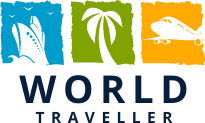Business travel can be a significant expense for organizations, but with careful planning and strategic choices, you can maximize your budget and ensure smarter spending. Here’s how to make the most of your travel budget while minimizing costs.
Understanding Your Budget
Establishing a clear understanding of your business travel budget is the first step toward effective spending. Break down the budget into categories such as transportation, accommodations, meals, and incidentals. This will provide a clearer picture of where funds are being allocated and help identify areas where you can save.
Planning Ahead
Planning is crucial when it comes to business travel. Book flights and accommodations well in advance to take advantage of lower rates. Use travel comparison websites to find the best deals. Additionally, consider flexible travel dates as flying during off-peak times can result in significant savings.
Leveraging Technology
Use technology to streamline your travel management. Travel apps can help you track expenses and itineraries, making it easier to stay within budget. Consider integrating expense management software that allows employees to upload receipts and manage their spending on-the-go, ensuring that all transactions are accounted for in real-time.
Choosing Cost-Effective Accommodations
When selecting accommodations, look beyond traditional hotels. Consider options like serviced apartments or short-term rentals that can offer more amenities for a lower price. Additionally, joining hotel loyalty programs can lead to discounts and perks that help stretch your budget further.
Utilizing Corporate Discounts
Many airlines, hotels, and car rental services offer corporate discounts for businesses. Establish relationships with these providers to secure better rates. By negotiating corporate accounts, you can reduce costs while ensuring your employees have reliable options during their travels.
Meal Planning and Per Diems
Food can be one of the largest expenses during business travel. Instead of dining out for every meal, consider incorporating a per diem system for daily meal allowances. This encourages employees to choose more affordable dining options. Additionally, having breakfast included in accommodation can reduce costs and save time.
Managing Transportation Costs
Transportation is another major expense during business trips. To minimize costs, explore options such as public transportation, rideshare services, and shuttle buses. If car rentals are necessary, book early and consider smaller, fuel-efficient vehicles to reduce costs.
Tracking and Analyzing Spending
After your trip, analyze your spending against the established budget. Use this data to identify patterns and areas for improvement. Regularly monitoring travel expenses allows you to adjust your budget and strategies for future trips effectively.
Encouraging Responsible Spending
Educate your team about the importance of sticking to the travel budget. Conduct training sessions to ensure employees understand policies regarding travel expenses. Encourage them to make cost-effective choices, promoting a culture of responsible spending within your organization.
Conclusion
Maximizing your business travel budget requires strategic planning, thoughtful choices, and effective use of technology. By understanding your budget, leveraging discounts, and encouraging responsible spending, you can ensure smarter spending that benefits your organization as a whole. With these strategies in place, you can focus on making the most of your business travels while keeping expenses in check.

